Drag Race season 10 episode 6 recap: ‘Am I the only gay man to not like the show?’ A newbie’s hot take
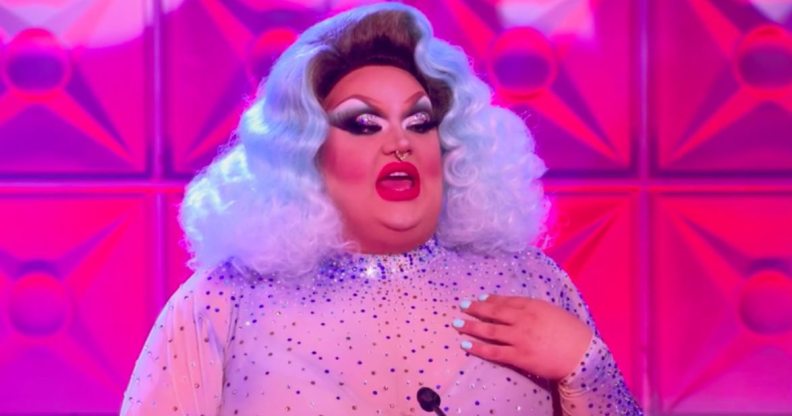
Every single week PinkNews is asking (read: forcing) RuPaul’s Drag Race newbies to watch and review the show, in a bid to change their lives forever.
This week, PinkNews reporter Benjamin Butterworth buckled up for his first circuit with RuPaul and his squirrel friends.
I’m hesitant to admit this, as a gay man, but I have not seen Drag Race before.
I feel like I’ve seen it a hundred times over, given how ubiquitous it is in LGBT culture. I could probably reel off the names of numerous drag queens, members of the regular judging panel and some of the catch phrases.
The two gay guys I share a flat with in Vauxhall, south London – apparently Britain’s gayest neighbourhood – are totally obsessed with it. Our WiFi is even named Trixie Mattel.
I also went for dinner with Michelle Visage at a pub in Hampstead once. She was a total delight – and had excellent geography knowledge – but I knew more about her role in The Bodyguard film than I did Drag Race.
Alas, season 10 episode six is the first full episode I’ve ever watched.
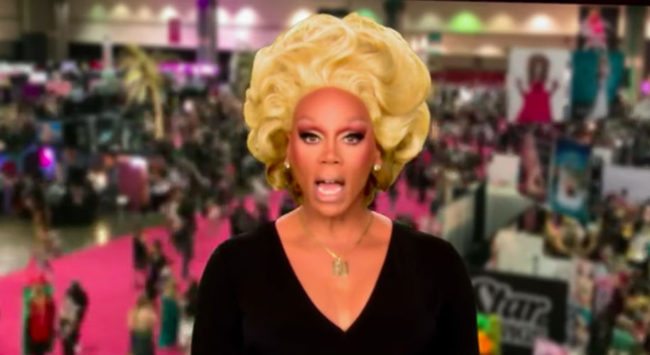
(VH1)
From the outset I couldn’t help but wonder: is it always so strange?
The first third of the latest episode is a task that involves the queens being blindfolded and asked to sit on an unidentified object.
Queens shimmy down on everything from an egg plant (of course) to a sloppy, creamy cake, and even a fax machine (which should probably come with an explanation – it’s an old fashioned email robot – for many Netflix viewers).
I watch in bemusement, feeling like maybe there’s an in-joke here that regular Drag Race fans will get, but has ignorantly passed me by?
Even RuPaul looks only vaguely interested in what is, essentially, 10 minutes of light entertainment based entirely on watching people go from stood up to sat down.
What cannot be denied is the powerful message behind the show. The personal stories are moving and inspirational.
Monet X Change, a black drag queen from, St. Lucia reveals how he hid his identity from family members, both as a gay man and drag queen. His aunty and uncle, who raised him as a child, still don’t know he performs in drag.
If he wants to keep that one a secret he might just need to hope they don’t have a Netflix account.
“People just don’t live out in the open as homosexual, or gay, or lesbian, trans, bi, anything. The islands are not the most welcoming to homosexuality,” he opens up, with a frankness that will no doubt mean a lot to viewers of this global show in less progressive parts of the world.
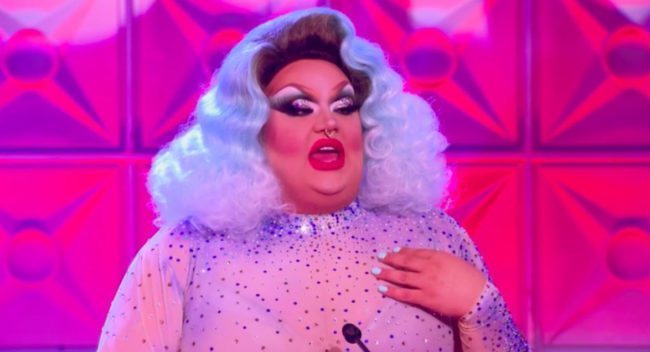
(VH1)
The show also doesn’t shy away from politics. Asked during the main challenge – a DragCon inspired panel round – Eureka O’Hara coms from nowhere to deliver political prose worthy of a Miss World.
She declares: “I think in this political climate right now we’re all afraid. And for us to escape the trials and tribulations we face through our lives, we do drag to celebrate ourselves, our femininity.
“People celebrate drag with us because it’s a way for us to escape, to feel like they belong. And this climate right now, none of us feel like we belong truly.”
Amen to that, girl.
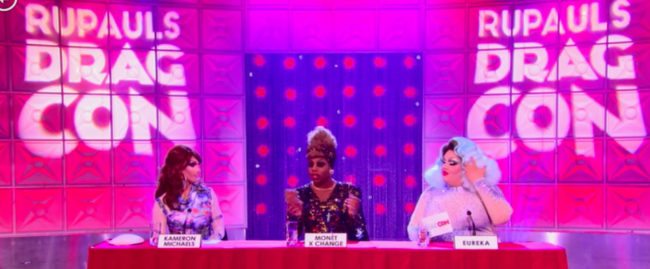
(VH1)
Related: Courtney Act describes how being gender fluid set her free
The tenth season of the drag talent contest is, I’m told by pals and colleagues alike, not the best. They say season six is peak.
So maybe this will give me some allowance when I confess to the fact that, actually, I didn’t enjoy the show.
The camera doesn’t seem to stay still on one shot for more than three seconds at a time. The endless dashing around of camera angles left me feeling dizzy, if not confused about what is going on.
The one thing I had assumed was that Drag Race is funny. I’ve seen some queens from past seasons live and they have often been witty and articulate. Which these queens seemed to be too, but the show can hardly be described as laugh out loud.
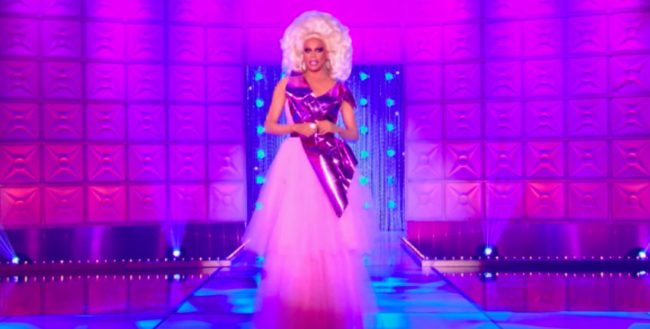
(VH1)
Related: Dad turns to Reddit to learn about RuPaul’s Drag Race to engage with ‘drag fan son’
The jokes are crass and seem to centre around the idea of putting another person down. I recognise that the nature of the show is the total opposite of that – and it was undoubtedly inspiring in parts.
But as role models for younger gay people watching the show, I can’t get past the idea that it teaches being ‘sassy’ or, to put it another way, rude, as an acceptable way to communicate.
I appreciate how talented the Drag race queens are. And the devotion of its LGBT fans shows just how enduring and popular the show is.
Likely I will be sent strings of put-down gifs for admitting this: but I’m a gay man and I don’t like Drag Race. It just doesn’t werk for me, or something like that.

